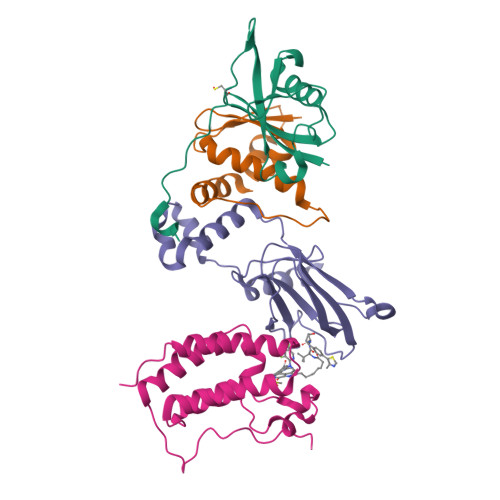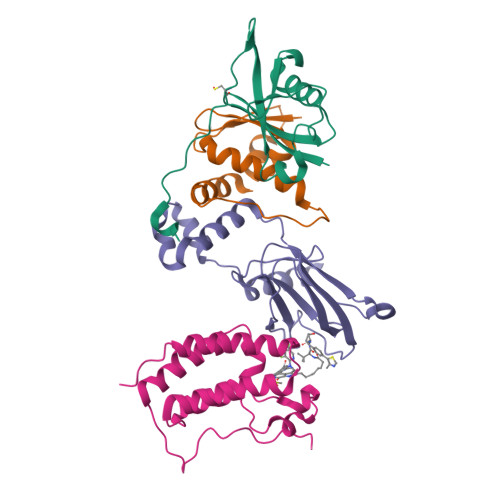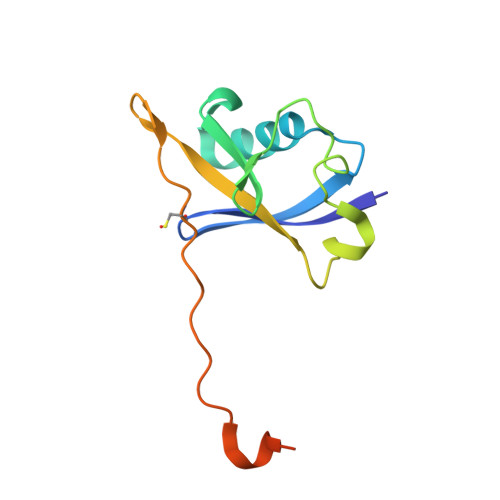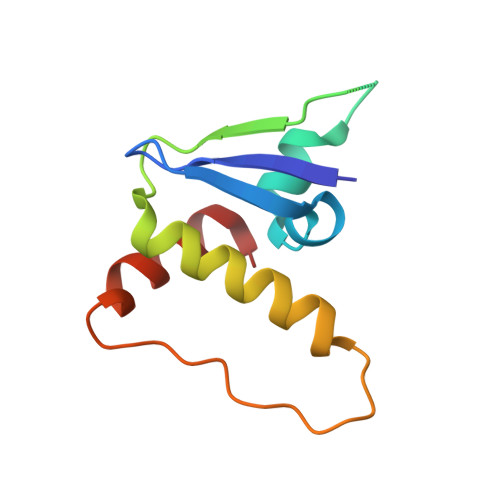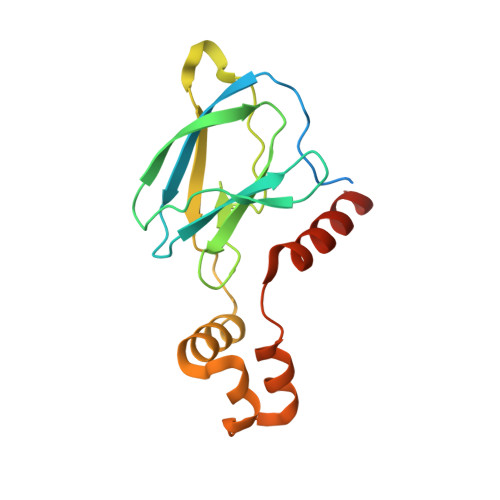Antibody-Mediated Delivery of Chimeric BRD4 Degraders. Part 2: Improvement of In Vitro Antiproliferation Activity and In Vivo Antitumor Efficacy.
Dragovich, P.S., Pillow, T.H., Blake, R.A., Sadowsky, J.D., Adaligil, E., Adhikari, P., Chen, J., Corr, N., Dela Cruz-Chuh, J., Del Rosario, G., Fullerton, A., Hartman, S.J., Jiang, F., Kaufman, S., Kleinheinz, T., Kozak, K.R., Liu, L., Lu, Y., Mulvihill, M.M., Murray, J.M., O'Donohue, A., Rowntree, R.K., Sawyer, W.S., Staben, L.R., Wai, J., Wang, J., Wei, B., Wei, W., Xu, Z., Yao, H., Yu, S.F., Zhang, D., Zhang, H., Zhang, S., Zhao, Y., Zhou, H., Zhu, X.(2021) J Med Chem 64: 2576-2607
- PubMed: 33596073
- DOI: https://doi.org/10.1021/acs.jmedchem.0c01846
- Primary Citation of Related Structures:
7KHH, 7KHL - PubMed Abstract:
Heterobifunctional compounds that direct the ubiquitination of intracellular proteins in a targeted manner via co-opted ubiquitin ligases have enormous potential to transform the field of medicinal chemistry. These chimeric molecules, often termed proteolysis-targeting chimeras (PROTACs) in the chemical literature, enable the controlled degradation of specific proteins via their direction to the cellular proteasome. In this report, we describe the second phase of our research focused on exploring antibody-drug conjugates (ADCs), which incorporate BRD4-targeting chimeric degrader entities. We employ a new BRD4-binding fragment in the construction of the chimeric ADC payloads that is significantly more potent than the corresponding entity utilized in our initial studies. The resulting BRD4-degrader antibody conjugates exhibit potent and antigen-dependent BRD4 degradation and antiproliferation activities in cell-based experiments. Multiple ADCs bearing chimeric BRD4-degrader payloads also exhibit strong, antigen-dependent antitumor efficacy in mouse xenograft assessments that employ several different tumor models.
Organizational Affiliation:
Genentech Inc., 1 DNA Way, South San Francisco, California 94080, United States.








